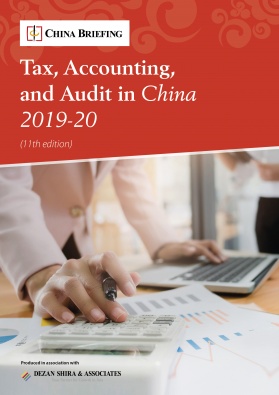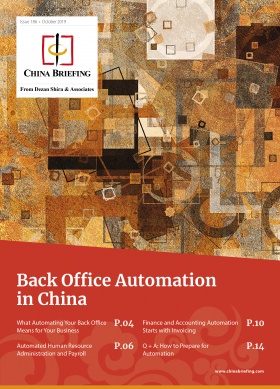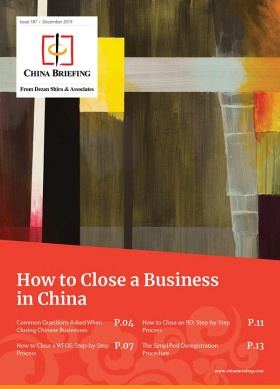China’s Market Regulator Clarifies Recall Obligations for Consumer Products
- New rules detailing the recall obligations of producers and sellers of consumer products in China came into effect January 1, 2020.
- Foreign producers can designate a domestic agency to conduct the recall of any defective or spoiled goods.
- The new compliance regime will facilitate industry best practices in product quality management and includes a time-bound process with penalty clause.
On November 26, 2019, China’s State Administration for Market Regulation (SAMR) released the Interim Provisions on the Recall of Consumer Products to be effective January 1, 2020.
The regulation clarifies the recall obligations and responsibilities of both producers of consumer goods and operators selling, leasing, or repairing consumer goods.
According to the Interim Provisions, when a producer or other operators discover any of the following concerns on the consumer products they make or sell, they must report to provincial market regulators within two business days (Article 8 Paragraph 1):
- The product has caused or might cause death, serious damages to the human body, or significant property losses; or
- The product has been recalled out of the People’s Republic of China.
If the local SAMR conducts an on-site investigation, the producer and other operators have the obligation to cooperate with the regulator and provide necessary materials, goods, and special equipment to assist in the investigation (Article 11).
If a producer discovers that a consumer good is defective or it was informed or ordered by the SAMR to recall the consumer good, they must submit a recall plan to the local regulator within ten working days (Article 17).
The following information must be provided (Article 18):
- Scope of consumer products to be recalled, defects, and emergency response made to avoid damage;
- Specific recall measures;
- The responsible organization, its contact information, and the schedule of the recall; and
- Other contents that need to be reported.
Since the date of the implementation of the recall, the producer will have to submit a periodic summary of the recall to the local SAMR every three months and submit a final summary within 15 working days after the completion of the recall plan (Article 21).
If producers or operators failed to comply with the above and other provisions (Article 8.1, 11.2, 15, 16, 17, 19.2, 20, 21), the provincial SAMR will order it to make corrections within a time limit.
If no correction was made within the prescribed time limit, the violators may be imposed a fine ranging from RMB 10,000 to 30,000 (US$1,420 to 4,260) (Article 25).
For foreign manufacturers, Article 29 of the Interim Provisions regulates that a domestic agency in charge of conducting the recall shall be designated by the overseas producer.
If the overseas producer has not designated any agency, then it will be deemed as the “producer” itself and must fulfill the recall responsibilities.
The Interim Provisions streamline and improve the recall system in many aspects.
Production and business enterprises must strengthen their product quality management standards as well as understand and implement the relevant requirements of China’s recall provisions to prevent exposure to legal risks.
China Briefing is written and produced by Dezan Shira & Associates. The practice assists foreign investors into China and has done since 1992 through offices in Beijing, Tianjin, Dalian, Qingdao, Shanghai, Hangzhou, Ningbo, Suzhou, Guangzhou, Dongguan, Zhongshan, Shenzhen, and Hong Kong. Please contact the firm for assistance in China at china@dezshira.com.
We also maintain offices assisting foreign investors in Vietnam, Indonesia, Singapore, The Philippines, Malaysia, and Thailand in addition to our practices in India and Russia and our trade research facilities along the Belt & Road Initiative.
- Previous Article What to Expect as China’s Economy Enters 2020?
- Next Article China-Pakistan FTA Phase-II: Reduced Tariffs, New Safeguard Measures










